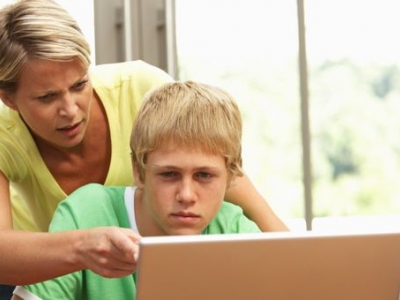
Unplugging our kids (and their parents)
The benefits of reducing your child's time with electronic gadgets.
The reality of what can happen to our kids when they reach electronic overload can frighten any parent. We've seen the glazed-eye look and twitchy thumbs on our kids (and, honestly, on ourselves). We know enough to worry.
Some examples:
- A recent study reports that the more hours teenagers spend using a computer or watching TV, the weaker their emotional bonds with their parents.
- Children under two have their ability to create, imagine, interact, and concentrate impaired by TV and screen time.
- Additionally, too much screen time is directly linked to childhood obesity, lack of sleep, and a decline in grades.
- According to the American Journal of Epidemiology, teenagers spend the equivalent of a full time job looking at screens.
Sound dire? It's not all bad news. Other studies report better reflexes, increased empathy, and other skills stemming from the use of electronics. My own kids now know teens on the other side of the globe through social networking, and their cultural sensitivity is increased as a result.
Like everything, screen time has its good side and its dark side. It's up to parents to do the tricky navigation of getting our kids to choose wisely when it comes to using their many electronic gadgets.
Stop and think
Phone apps can teach our kids everything from how to read to how to brush their teeth. But that doesn't mean they should (there's plenty of other ways!). Marketers have a big stake in convincing us we need all those apps and gadgets so our kids can keep up with the other kids. We are not required to listen and believe. We have the choice to stop, ask ourselves “Hey—can I teach my kid to brush her teeth with no dire consequences?”, and say “no” to the push to make everything electronic. Hands on human time is still best.
Create limits
For younger kids, limits on screen time are great. For older ones, an emphasis on “zones” works better. That means you decide what times and places are off limits for screens. Meal time should be a priority. A family taking that time to connect is a huge predictor of future happiness and closeness.
Some parents collect devices an hour before bedtime. Studies show kids sleep better when they haven't seen screens for at least an hour before sleep. Use that time for stories of the day, reading, talking, planning, and dreaming. By the way, doctors and technology CEO's appear to agree unanimously—computers in bedrooms are unhealthy and dangerous.
Other parents don't allow gaming except on weekends or after homework. Some refuse to allow devices in the car, while others use them only in the car. Decide together what works for your family and choose your tech free zones.
And parents? You have to abide by these rules, too.
Plan alternatives
If most of your life revolves around media, your kids will consider electronic engagement what you do as a default. Parents can establish other defaults. You can choose to be the family who does sports together, or gets out in nature, who crafts or does art, or who volunteers to help others.
You make the decision on what happens in your family when there's nothing else happening. Do you jump right to screen time, or do you automatically find something else to do? It's up to the plan you make beforehand and the example you set.
Plan a fast
Challenge the kids to fast from one or more forms of media—Facebook, music, texting, snapchat, TV, etc. Make it competitive. Every time they cave, they have to put a dollar in the fund. Whoever wins by fasting from the most media and putting in the fewest dollars chooses the charity they go to, or your next vacation spot, or fun activity. You can do this for a day, week, or a month. Again—parents must participate for it to send the right message.
Unplug yourself
Parent can lecture, teach, preach, and warn kids their eyes will cross and they'll end up living alone in a dark basement with no friends. But no number of lectures will have the effect of seeing you refuse to take a call while talking with your child. It tells him--I'm more important. It shows her that you value face to face time with people most.
If your kids see you constantly checking your email, texts, and Facebook status, they will do as you do, not as you say. Instead, model to them that it's OK to be quiet. It's OK not to answer. It's OK to turn it off and ignore the world.
In his book Margin, Dr. Richard Swenson argues,
“Because life has now shifted to exponential terms, the issue of limits has suddenly become an important one. We have met or exceeded limits in scores of areas but don’t know how to pull back. How do you slow a careening world when the throttle is stuck wide open?”
We're careening. I'm careening. And I don't like it. I want to be quiet. I want to listen. I'm not good at it, but I try. Most of all, I want to allow enough quiet to face the questions God has for me, and the dreams he dreams for me. To breath. Listen. Live. Quietly before God.
I want that for my kids, too.
For more articles from Growing Faith, subscribe to our monthly e-newsletter.
To hear about the latest books and resources from Youthworks Media, subscribe here.







